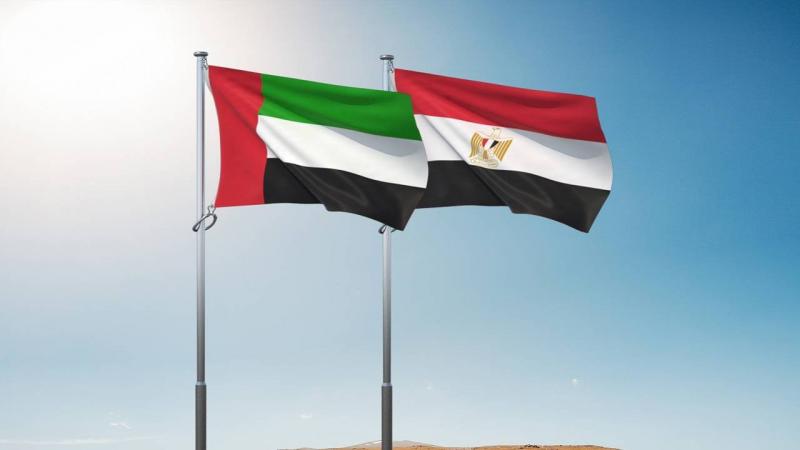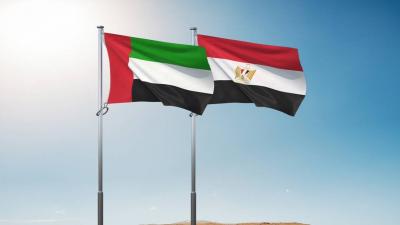The United Arab Emirates and the Arab Republic of Egypt have elevated the level of their bilateral relations in recent years to advanced stages, contributing to strengthening their presence as key players in the region politically, economically, and militarily. Over the years, the two countries have emphasized a unified strategic foundation that reflects their mutual understanding and alignment of visions regarding various developments and issues, facilitating swift responses to challenges faced by the region.
The political stances of both countries towards major regional issues are based on a set of principles, most notably supporting peaceful resolutions to conflicts, safeguarding the resources of peoples, ensuring security and stability in the Arab region, and maintaining the unity and integrity of its states. The UAE and Egypt have played significant roles in many strategic files in the region, successfully steering clear of numerous instances that could have led to chaos and instability, thanks to the wise leadership of both nations.
Simultaneously, Abu Dhabi and Cairo have worked within international and regional alliances aimed at combating terrorism, halting financing for terrorist groups, and removing political and media support from them, in addition to stopping the supply of weapons and fighters, which has contributed to alleviating several challenges in the region.
The UAE and Egypt are linked by close and strong historical ties and a rich history of joint work to reinforce Arab and regional security and sustain development in their countries. The history of Egyptian-Emirati relations dates back to before 1971, when the United Arab Emirates was established under the leadership of the late Sheikh Zayed bin Sultan Al Nahyan. The UAE stood by its sister Egypt during difficult times, from the Suez Crisis to the aftermath of the June 1967 War, contributing to the October War of 1973, including a decision to cut oil supplies in solidarity with Egypt and donating £100 million to assist Egypt and Syria during the war.
Just as the late Sheikh Zayed bin Sultan Al Nahyan supported Egypt during the war, he also participated in the development phase through various projects in housing, health, agriculture, and other sectors. Conversely, Egypt was one of the first countries to support the establishment of the United Arab Emirates in 1971, quickly recognizing it upon announcement and supporting it internationally and regionally as a cornerstone of security and stability and a new asset to Arab strength.
Since that time, UAE-Egyptian relations have been rooted in a framework of strategic partnership aimed at achieving the interests of both peoples and addressing the challenges facing the region. In the first half of 2020, the non-oil trade exchange between the two countries reached approximately $3.4 billion, growing by 20% compared to the same period in 2019, with the UAE being Egypt's second-largest Arab trading partner and ninth globally. The non-oil trade between the two nations quadrupled between 2010 and 2019, while UAE direct investments in Egypt approached $15 billion, with Egyptian investments in the UAE exceeding $1 billion.
Al-Azhar Al-Sharif enjoys official and public Emirati recognition as a moderate religious reference. In this context, the Sheikh Zayed Grand Mosque Center announced in April 2013 an initiative to fund several projects at Al-Azhar in Egypt, with an estimated cost of about 250 million dirhams.




